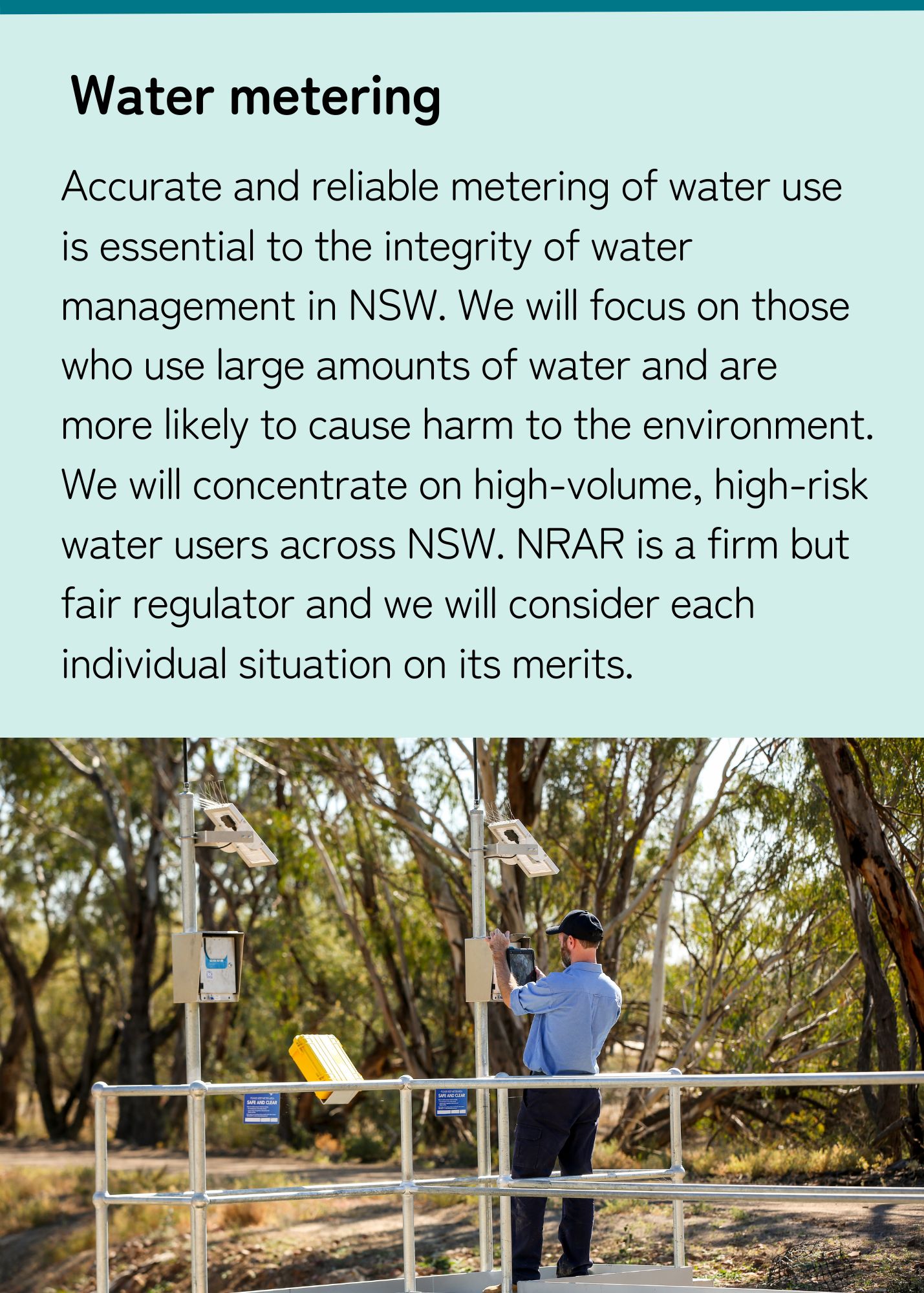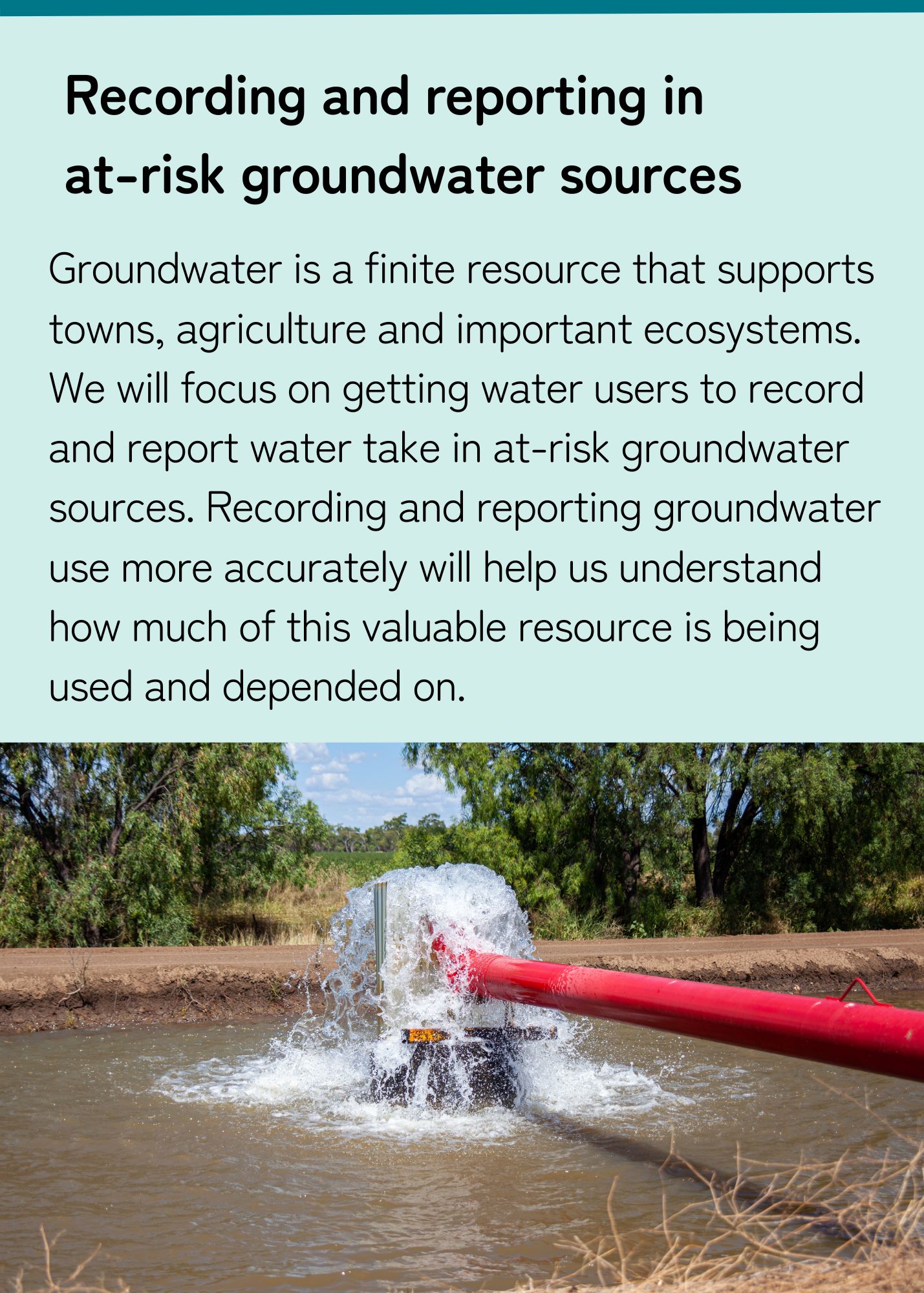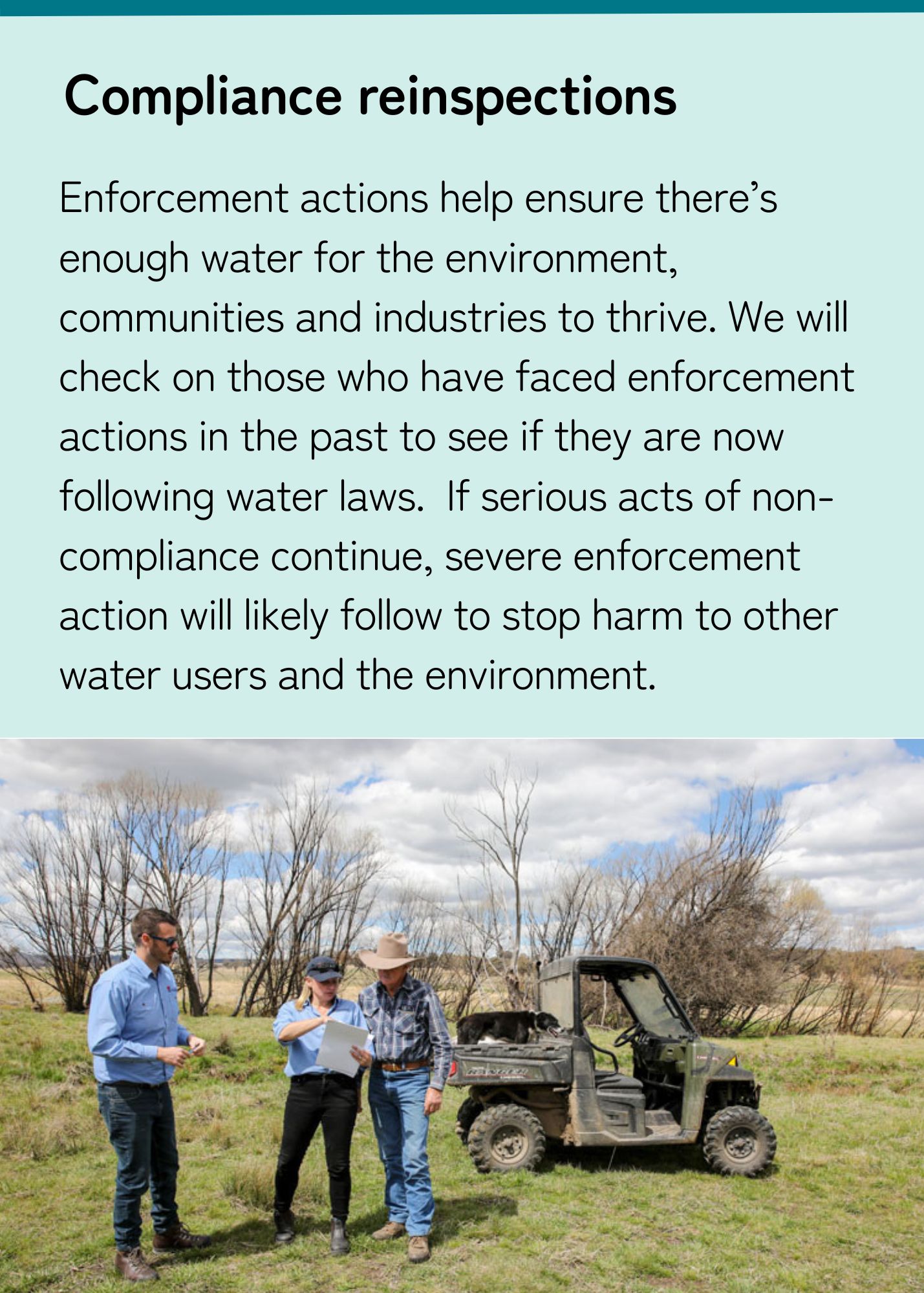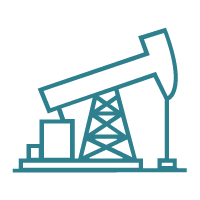NRAR’s regulatory priorities focus on activities, regions or industries that may not be following the water rules or have the potential to cause harm to the environment or the community.
There are two types of priorities:
- annual priorities
- enduring priorities
Our annual priorities
Annual priorities are year-long projects. Each priority can be solved by understanding the problem, supporting industry and making sure laws are obeyed.
Every year, new priorities are set based on:
- patterns that emerge from non-compliance
- how well we can fix a problem within 12 months
- weather forecasts
- what communities and the environment need.
Outlined below are our priorities for 2024-25.



Annual priorities put targeted sectors of our regulated community on notice to comply with the law.
The goal of our annual priorities is to drive widespread voluntary compliance as effectively as possible using the most appropriate mix of regulatory tools.
Our enduring priorities
Our enduring priorities address activities and conduct that typically pose a greater risk to water management in NSW or are values that underpin the decisions we make and the work we do.
Enduring priorities are often complex and take longer to solve or act on and may be areas that NRAR will always consider important.
Outlined below are our enduring priorities
 Accurate measurement
Accurate measurement
We will continue to ensure that water take is measured and reported accurately in line with the law.
 Aboriginal cultural values
Aboriginal cultural values
We will conduct our work with respect for the values of the Aboriginal peoples of NSW,
for whom water is intrinsically linked to their obligations in caring for Country.
 Unlawful activity, significant harm
Unlawful activity, significant harm
We will take action against water users who break the law in ways that cause significant harm
to the environment, the community and to other water users.
 Unauthorised structures
Unauthorised structures
We will regulate people with unauthorised structures on the floodplain that divert water away
from the environment or from places and traditions of cultural significance.
FAQs
How are regulatory priorities chosen?
We consider several factors when selecting regulatory priorities, including but not limited to:
- the level of non-compliance and the impact on environment, community, culture and economy from a particular activity or industry
- the persistence of an issue and our ability to solve it
- the potential to prevent future harm and non-compliance
- the likelihood of the unlawful activity to encourage others to break the rules.
What does a regulatory priority project look like?
Our approach to priority projects can be broken down into four stages:
- Identify: data from internal sources, community reports, licence conditions, water accounts, water allocations, drones and ongoing satellite monitoring are all used in combination to identify areas for NRAR’s focus.
- Understand: intelligence specialists work with compliance teams to capture knowledge and improve our understanding of our chosen priority areas. All information gathered is used to choose the best regulatory tools to solve issues of non-compliance.
- Support: NRAR widely promotes priority areas through communication and education campaigns and may engage with local industry and representative groups to help support those who want to do the right thing and move into compliance.
- Enforce: those who continue to engage in unlawful activity are prioritised for strong enforcement responses. NRAR will act more severely against those who break the law in priority areas.
What priority areas has NRAR focused on in the past?
We review and update our priorities on an ongoing basis to account for new developments in our data and analytical tools. Annual priorities also allow NRAR to be responsive to the evolving needs of the community and the environment.
Previous regulatory priorities can be found below.